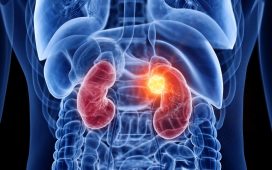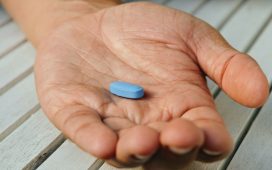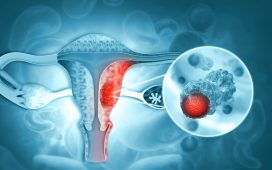The Endocrine Society’s 100th Annual Meeting and Expo
The annual meeting of The Endocrine Society was held from March 17 to 20 in Chicago and attracted more than 9,000 participants from around the world, including clinicians, academicians, allied health professionals, and others interested in endocrine and metabolic disorders. The conference highlighted recent advances in the diagnosis and management of obesity, endocrine disorders, diabetes, and growth hormone and thyroid diseases.
In a phase 2 study, Patrick M. O’Neil, Ph.D., of the Medical University of South Carolina in Charleston, and colleagues found that all doses of semaglutide were associated with significantly greater weight loss compared to placebo in obese individuals without diabetes over a 52-week period.
“It should be noted that all individuals also received diet, activity, and behavioral counseling for weight loss at every visit, and were provided guidance for a diet that would produce an approximately 500 calorie/day energy deficit,” O’Neil said.
The investigators found that the individuals who received the highest dose of semaglutide had weight loss greater than what is typically seen with pharmaceutical agent plus lifestyle-change treatment.
“Phase 3 studies will be important to replicate these findings,” O’Neil added. “Semaglutide is not approved or available for obesity management for people without diabetes, and this was a phase 2 trial, so direct impacts on clinical practice are perhaps not obvious. However, these results should demonstrate the possible impacts of combined (lifestyle change plus pharmaceutical) interventions for obesity and should encourage practitioners to address their patients’ obesity just as seriously as they would any other chronic condition.”
Abstract OR12-5
In another study, Michael Alan Wood, M.D., of the University of Michigan Medical School in Ann Arbor, and colleagues found that Medtronic’s MiniMed 670G hybrid closed loop insulin delivery system was safe and effective for children aged 7 to 13, as was previously reported for adolescents (age 14 and above) and adults.
“Our study involved a free-living trial (with a six-day, five-night portion of the study spent under direct investigator supervision) of the 670G system for three months in 105 children aged 7 to 13,” Wood said. “For all age groups, three-month use of the MiniMed 670G system improved hemoglobin A1c levels, increased time in target glucose range, and reduced time spent with a sensor glucose ≤70 mg/dL and >180 mg/dL.”
During the three-month research phase in the 7 to 13 year old children, the investigators observed no episodes of diabetic ketoacidosis or severe hypoglycemia.
“If the MiniMed 670G hybrid closed loop insulin delivery system is approved by the U.S. Food and Drug Administration for this younger age group, then children aged 7 to 13 and their families will have access to another safe, effective option for managing type 1 diabetes,” Wood said.
Several authors disclosed financial ties to Medtronic, the manufacturer of the MiniMed 670G.
Abstract SAT-179
Ambrish Mithal, M.D., of Medanta-The Medicity Hospital in Gurugram, India, and colleagues evaluated the effect of empagliflozin on liver fat in patients with type 2 diabetes and nonalcoholic fatty liver disease (NAFLD) using magnetic resonance imaging-derived proton density-fat fraction for liver fat quantification.
“Empagliflozin, when included in the standard treatment for type 2 diabetes (empagliflozin group), was significantly better than standard treatment for type 2 diabetes without empagliflozin (control group) in reducing liver fat,” Mithal said. “Empagliflozin reduced liver fat and improved alanine aminotransferase in patients with type 2 diabetes and NAFLD. NAFLD in diabetes has significant long-term implications, and any treatment that reduces liver fat and thus potentially prevent its progression to advanced stages of chronic liver disease is an exciting prospect.”
Abstract No. OR27-2
Madhusmita Misra, M.D., of Harvard Medical School and the Massachusetts General Hospital in Boston, and colleagues randomized adolescent and young adult normal-weight athletes, 14 to 25 years of age, with irregular periods to receive either physiologic estrogen replacement using a transdermal patch with cyclic progesterone, an oral estrogen-progesterone containing pill (an oral contraceptive pill), or no estrogen for 12 months.
“The Eating Disorder Inventory-2 and Three-Factor Eating Questionnaire were administered at the beginning and the end of the study to assess disordered eating behavior and psychopathology,” Misra said. “We found that the group that did not receive estrogen had a worsening of disordered eating behavior and psychopathology over the 12-month duration of the study, but this was not observed in the group that received estrogen replacement.”
Furthermore, the investigators found that body dissatisfaction scores improved over 12 months in the groups receiving estrogen replacement, with the transdermal estrogen group showing the strongest effect.
“These findings emphasize the importance of normalizing estrogen levels in this population of athletes with low estrogen levels in the context of preventing a further worsening of disordered eating behavior,” Misra said.
Abstract No. SAT-290
Archana Bandi, M.D., of the Veterans Administration Pittsburgh Healthcare System, and colleagues compared an electronic consultation care modality (e-consult) with traditional care delivery (face-to-face consult [F2F]) for veterans with diabetes.
“E-consult cohort veterans were younger, more likely to be males, and living in rural areas. The care delivered via e-consult was completed in much shorter duration (an average of 27 days earlier than F2F care) and led to significant decline in hemoglobin A1c, reflecting improved control of diabetes,” Bandi said. “Contrary to F2F care, where a patient traveled in person to see an endocrinologist three to four times over the course of 12 months, the e-consult care process lasted only up to three to six months from the time of initiation. Despite that difference in duration of patient engagement, a lasting benefit in improvement in diabetes control was seen over the 12-month period.”
Abstract No. SAT-738-LB
ENDO: Low Sperm Count Tied to Worse Cardiometabolic Health
MONDAY, March 19, 2018 (HealthDay News) — Low sperm count is associated with poorer measures of cardiometabolic health, according to a study presented at the annual meeting of The Endocrine Society, held from March 17 to 20 in Chicago.
ENDO: Drug Shows Promise As Effective Male Birth Control
MONDAY, March 19, 2018 (HealthDay News) — Daily oral administration of dimethandrolone undecanoate (DMAU) is well tolerated and is associated with reduced serum testosterone (T) levels into the hypogonadal range, according to a study presented at the annual meeting of The Endocrine Society, held from March 17 to 20 in Chicago.
Copyright © 2018 HealthDay. All rights reserved.







